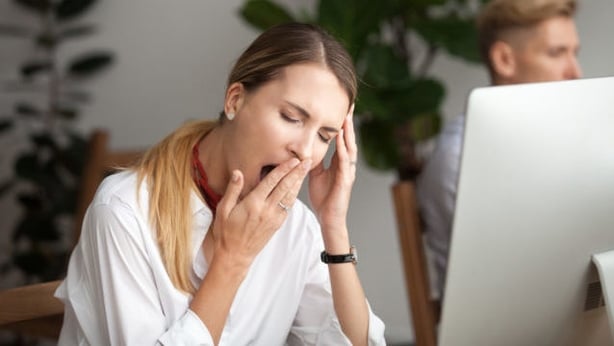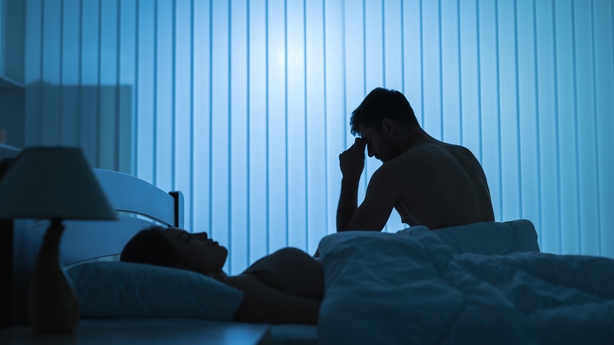Journalist and author Miranda Levy spoke to Claire Byrne about her own eight year struggle with insomnia, which she’s written about in her new book, The Insomnia Diaries: How I Learned to Sleep Again.
30-50% of people experience some sleep problems, while one in 10 will have chronic insomnia, which is classified as having difficulty sleeping for at least three days a week, for a period greater than three months. Miranda added to the medical definition from her own experience:
"Where it becomes a real problem, is when it goes on and on and it really affects every area of your life."

Many cases of insomnia will have causes that are fairly straightforward: stress, worry, restless leg syndrome or even too much caffeine. In Miranda’s case, she attributes her insomnia directly to a single cause:
"I found out – suddenly, really – that my marriage had come to an end and I had a shock reaction to that. But where most people might get over this – I mean, obviously it’s a big thing – but most people might lose a bit of sleep and gradually get over it, I didn’t and it kind of morphed into a standalone problem."
Dr. Sophie Bostock, a sleep evangelist, who’s written the foreword to Miranda’s book, has spoken about the loneliness of insomnia. It’s something that Miranda understands very well:
"Not only do you feel terrible during the day, at night you feel like the only person who’s awake on the planet. You know, if anyone’s been through this, they’ll know what it’s like, you stare at the numbers. You know, it’s 1:47, then it’s 2:46, then it’s half past 3, then it starts to get light and it’s horribly lonely."
Claire wants to know the what the impact of insomnia is on a daily basis. Miranda hardly knows where to start because sleep deprivation affects so many parts of your life:
"It felt like I was kind of under water, in a different world to everybody else. You know, I couldn’t concentrate, I couldn’t think, I lost my sense of humour almost immediately. And, you know, tired doesn’t cover it, really. It’s like being separate from everybody else and just like a zombie, really."
Miranda’s insomnia led to her losing her job, she had family problems and, naturally, health problems as well. Her GP prescribed her sleeping pills, but although they tend to work to some extent with most people, they weren’t effective with Miranda. Eventually, she was referred to a psychiatrist.
"And then all hell went loose. I was really in the pill factory, you know? And that’s when I really hit problems."

After unsuccessful attempt with therapy and rehab, Miranda checked herself into a psychiatric hospital, but the solution there seemed to be based on giving her more and more pills, so she didn’t hang around.
So, how did she eventually manage to beat the insomnia that had been plaguing her for eight years? There wasn’t a magic bullet, it came down to a number of different things she did to make changes in her life. She moved house.
The drugs she’d been on for so long left her system, improving her mental state and – even on only two or three hours’ sleep a night – she was able to start doing things again:
"I started exercising. I mean, I know people roll their eyes, but it’s really important, especially getting out in the morning. Morning light’s very good for managing melatonin. That’s the hormone in your brain that sort or regulates your body clock. Other things as well. I came across something called cognitive behaviour for insomnia, which has really good strategies."
No comments:
Post a Comment